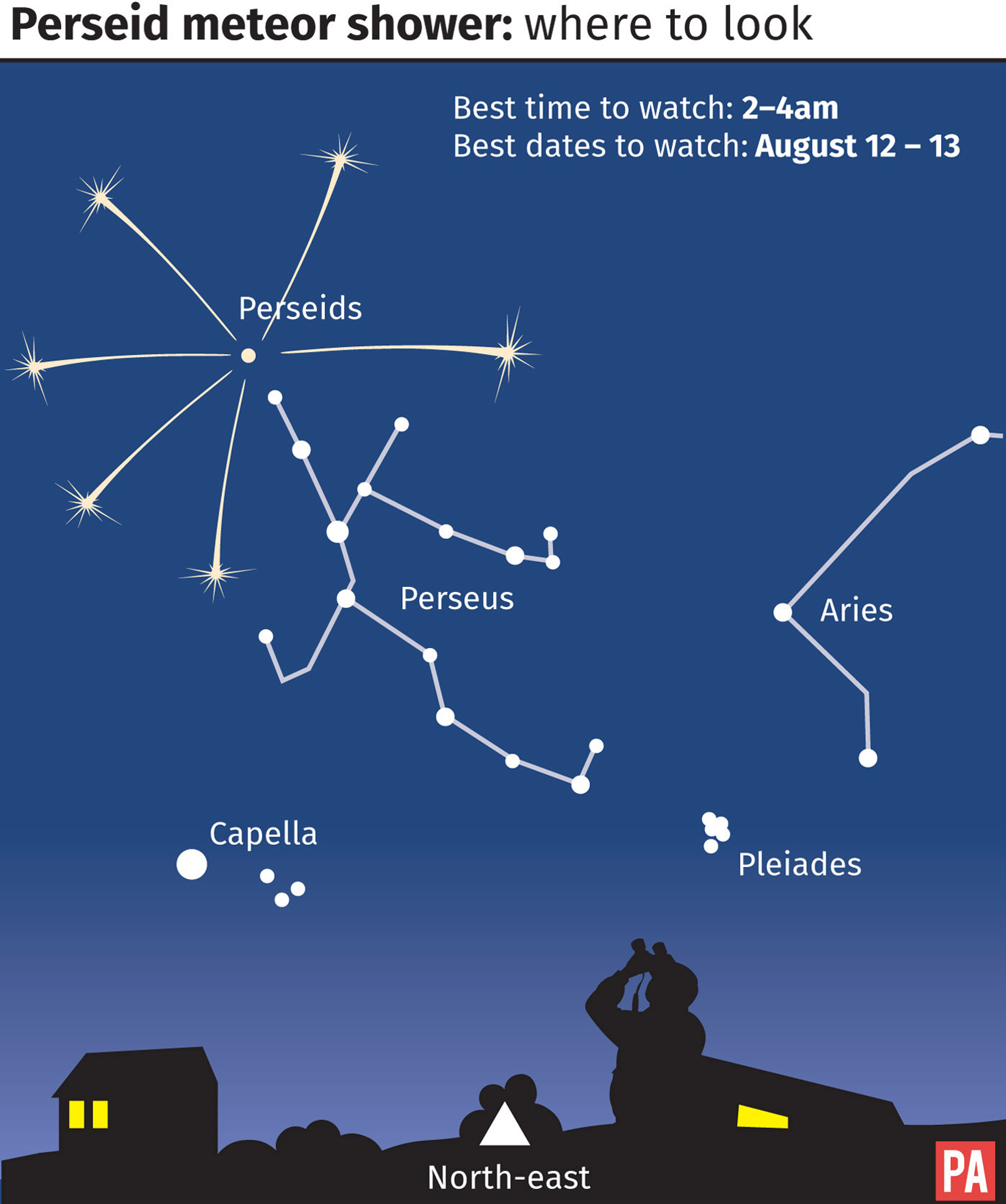
A spectacular display of heavenly fireworks is promised this weekend as the Earth flies through a cloud of cometary dust.
Against a dark sky and weather permitting, people will be able to see the Perseid meteors with two streaking flashes of light visible every minute during the peak time.
Here is everything you need to know:
What is the Perseid meteor shower?
The Perseid meteor shower is caused by debris falling from the tail of Comet Swift-Tuttle when it comes into contact with the Earth’s atmosphere. The comet orbits the Sun every 133 years.
The meteors, mostly no bigger than a grain of sand, burn up as they hit the atmosphere at 58 kilometres (36 miles) per second to produce a shooting stream of light in the sky.
Peak temperatures can reach anywhere from 1,648 to 5,537C (3,000 to 10,000 Fahrenheit) as they speed across the sky.
The meteors are called Perseids because they seem to dart out of the constellation Perseus.
How will you be able to watch it?

The peak time for Perseid watching will be Saturday night and before dawn on Sunday, but the meteors may already be making an appearance.
Get as far away from all artificial lights as you can and allow at least 45 minutes for your eyes to adjust to the dark. The meteors will be visible to the naked eye.
Seen from the Earth, the Perseids appear to originate from one place in the north-east known as the “radiant” which happens to be near the Perseus.
Not only will a waning gibbous moon be rising in the region of the Perseid radiant, but the meteors will be visible for longer when viewed streaking away from their point of origin
So lie on your back, relax and enjoy the show. And don’t forget to take your blanket.
What to expect?
 (Ben Birchall/PA)
(Ben Birchall/PA)
Robin Scagell, vice president of the Society for Popular Astronomy, said: “The numbers are going to be quite good. We can look forward to a decent display, even though they aren’t going to be raining down from the sky.
“The Perseids can be very bright and often quite spectacular. Some meteor showers are slow, but we are moving into the Perseid stream so they are coming at us quite swiftly.
“I think under good conditions you might see one or two a minute, probably more towards Sunday morning rather than Saturday.
“You could see none at all for a few minutes and then two or three. You might be lucky or unlucky; that’s the way with meteors.”



Comments & Moderation
Readers’ comments: You are personally liable for the content of any comments you upload to this website, so please act responsibly. We do not pre-moderate or monitor readers’ comments appearing on our websites, but we do post-moderate in response to complaints we receive or otherwise when a potential problem comes to our attention. You can make a complaint by using the ‘report this post’ link . We may then apply our discretion under the user terms to amend or delete comments.
Post moderation is undertaken full-time 9am-6pm on weekdays, and on a part-time basis outwith those hours.
Read the rules here